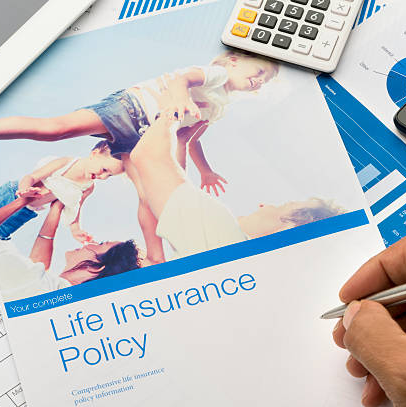Determine your needs before purchasing life insurance.

Don’t just choose a set amount of life insurance without determining your requirements. It can be higher or lower than what “looks about right.”
Typically, life insurance is purchased for the following reasons.
1. Taking care of your loved ones when you pass away: This is the component of life insurance that needs to be considered the most. Even after you pass away, your family will always rely on you, so you don’t want to disappoint them. Life insurance could save your surviving dependents, whether it’s to replace lost income, pay for your child’s education, or ensure that your spouse receives much-needed financial security.
2. Assists in achieving long-term goals: Because it is a tool that keeps you invested over the long term, it will aid in achieving long-term objectives like retirement planning or home ownership. Additionally, it offers you a variety of investment choices that go along with various policy kinds.
Specific investment products that pay dividends depending on performance are connected to specific insurance policies. Read the fine print if you choose an investment-linked policy to fully understand the potential risks and returns.
3. A method for forced savings: If you select a conventional or unit-liked policy, you must pay a monthly premium greater than your insurance’s cost. This small amount of extra money is invested, growing in value over time. Then, you can decide whether to sell the money or take a loan against the insurance in exchange for it.
4. Managing debt: You don’t want to burden your family with debt during a crisis. If you choose to get the appropriate life insurance policy, you can pay off any existing debt, including any auto, personal, or credit card loans.
5. Tax savings: Regardless of the insurance plan you choose to purchase, you may be able to save taxes. The premium you pay for an insurance policy qualifies for a Section 80C maximum tax benefit of Rs. 1.5 lakh and Section 10(D) tax-free proceeds upon death or maturity.
6. You could lose your eligibility later: Life insurance policies are subject to risk. If you unexpectedly get unwell, you might not be able to purchase a life insurance policy. You may be in good health right now, and paying a premium on life insurance may seem like an additional financial burden. It is essential to purchasing one early in life because it is valid even if your health declines later. According to insurance firms, you can add certain riders or benefits to your new or existing policy.
7. Life insurance complements your retirement goals: Who wouldn’t want their retirement funds to continue growing till they retire? By implementing a life insurance plan, you may ensure you have a consistent source of income each month. An annuity is similar to a pension plan in that you can enjoy a consistent monthly income even after retirement by making regular payments into a life insurance product.
More on life insurance
You might not require life insurance if your passing wouldn’t put you in a difficult financial situation and if you have enough liquid assets to pay for your final costs. Consider terminating your term life insurance policy. Cash value insurance may be traded for tax-free annuities to generate income and postpone paying taxes.
If you need to purchase life insurance, you can choose between more expensive cash-value policies and less expensive term insurance.
You will need to make different decisions if you purchase term insurance. A few types of term insurance are renewable annually, allowing you to get coverage for one year at a time. The expense rises yearly. If your insurer raises your rate too much, you can look elsewhere for a better offer. However, if your health has declined, you might not receive a better offer.
A different option is to get “level-premium term” insurance, which will fix the term rate for five, ten, or even twenty years. Although this type of insurance will initially cost more than an annual renewable term policy, you will not be subject to sudden rate hikes during that time. You will need to undergo another physical examination to keep your term insurance after the five, ten, or twenty years are over.
As a result, you face the danger of developing a medical issue that makes you uninsurable (or merely insurable at high prices). However, accepting this risk can be worthwhile if you believe you won’t need much life insurance in 20 years.
Contact Information:
Email: [email protected]
Phone: 9568933225
Bio:
Rick Viader is a Federal Retirement Consultant that uses proven strategies to help federal employees achieve their financial goals and make sure they receive all the benefits they worked so hard to achieve.
In helping federal employees, Rick has seen the need to offer retirement plan coaching where Human Resources departments either could not or were not able to assist. For almost 14 years, Rick has specialized in using federal government benefits and retirement systems to maximize retirement incomes.
His goals are to guide federal employees to achieve their financial goals while maximizing their retirement incomes.





